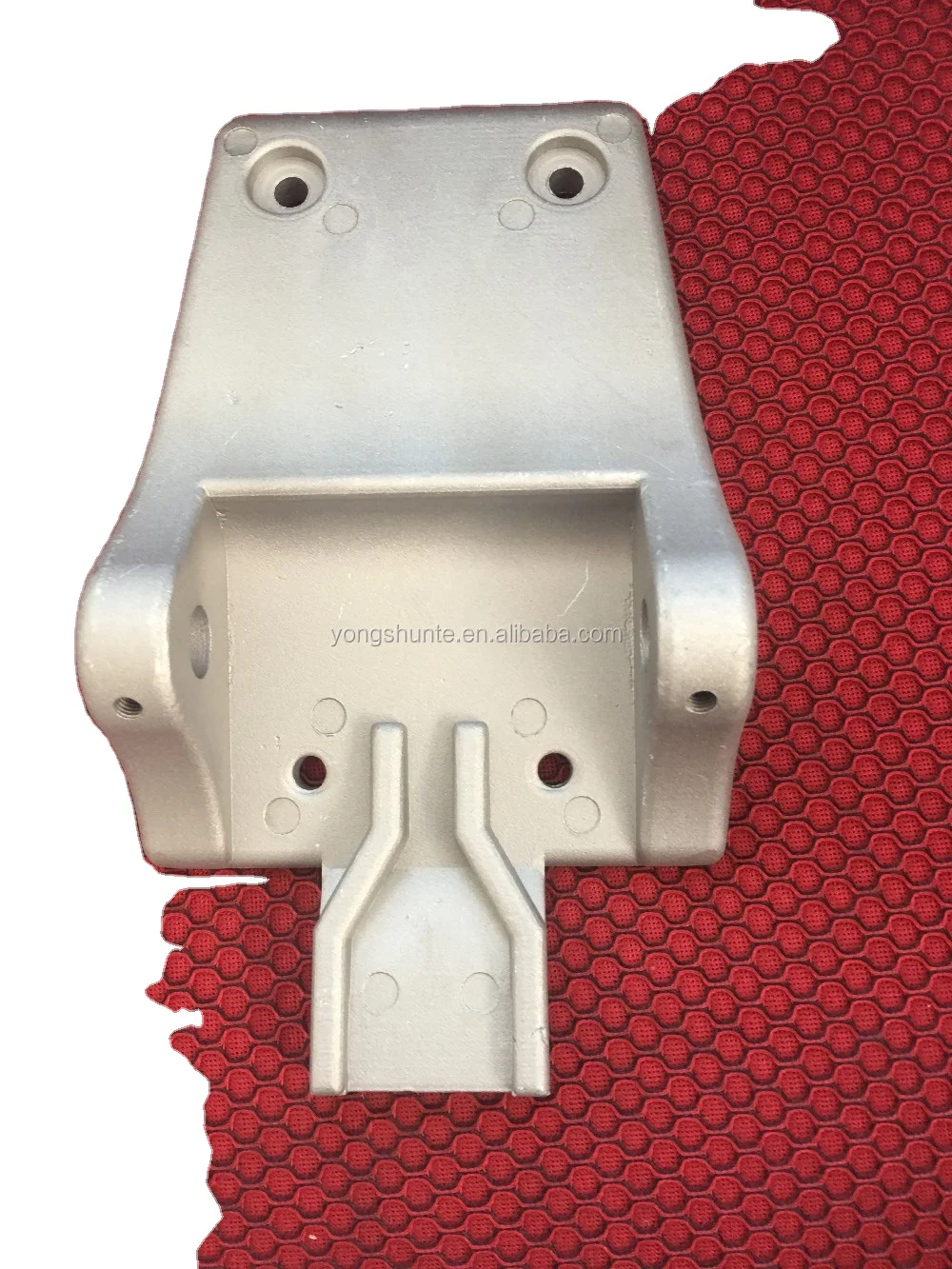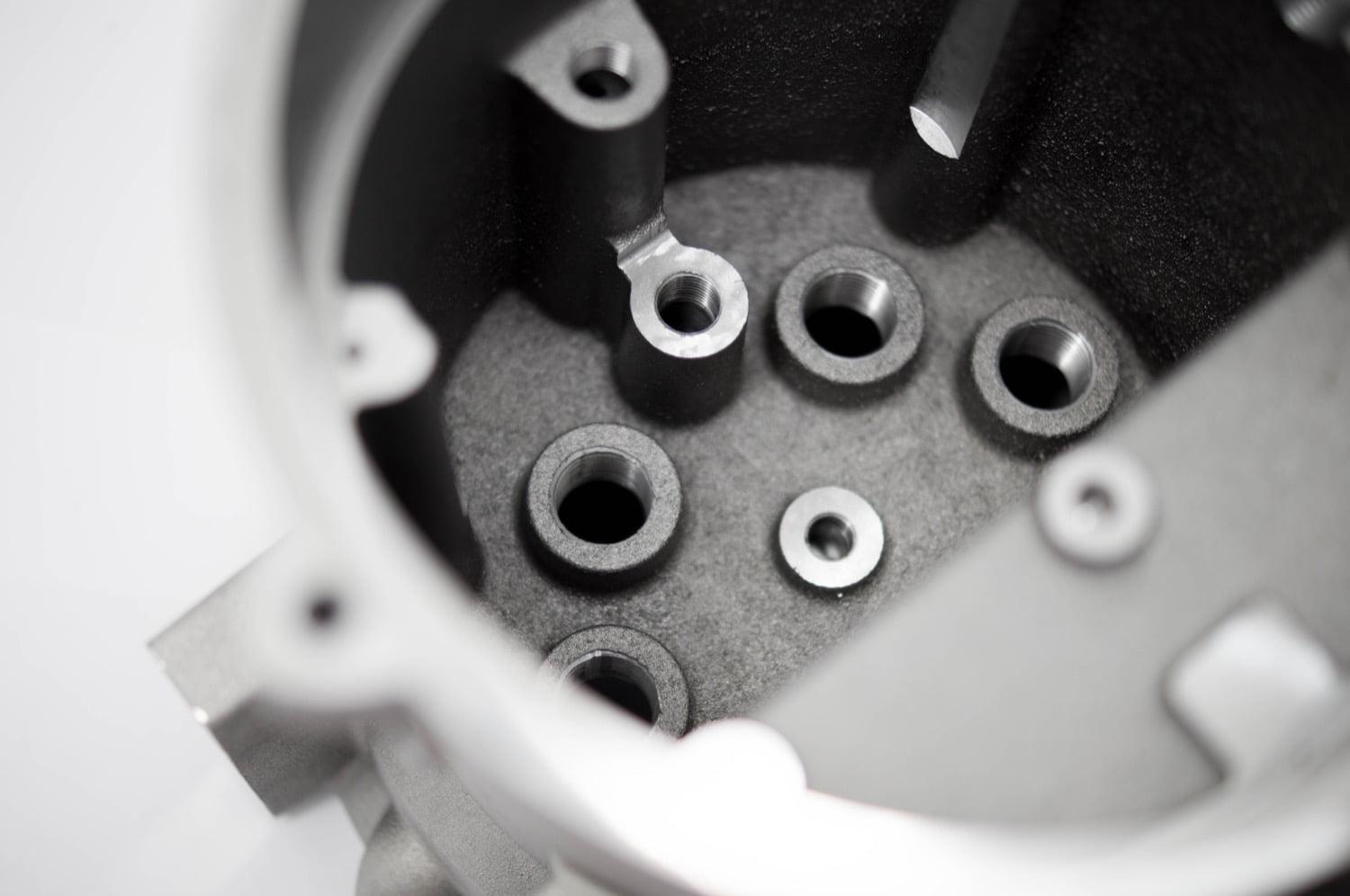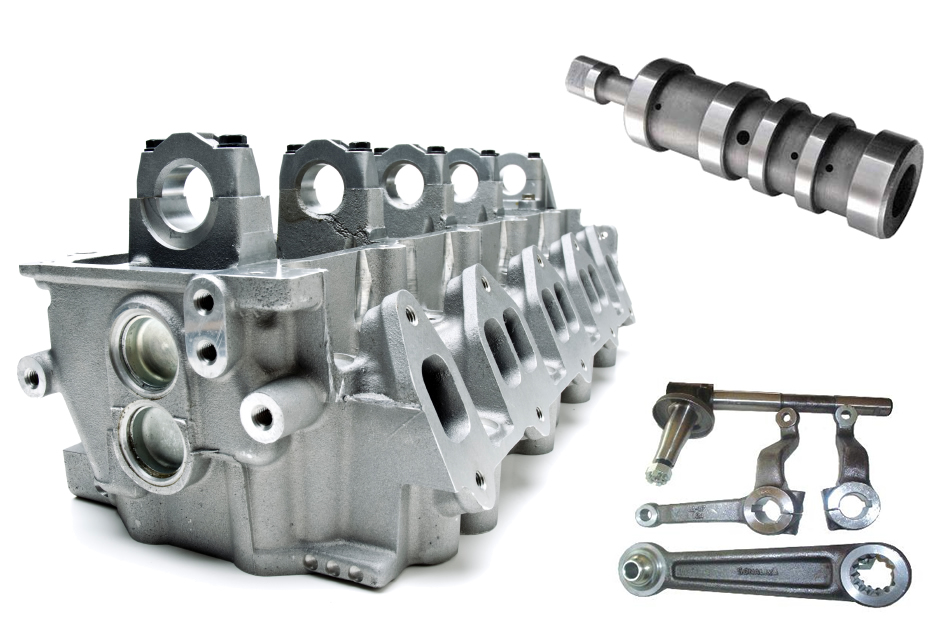The Role of Aluminum Foundries in Advancing Lightweight Manufacturing Solutions
Light weight aluminum shops substantially add to the advancement of light-weight manufacturing options. Their ingenious casting innovations produce high-strength, light-weight parts crucial for markets like auto and aerospace. This development not only enhances product performance however also promotes sustainability via making use of recycled materials. As these shops adapt to emerging techniques and modern technologies, they pave the way for future growths in making performance and ecological duty. What exists in advance in this transformative trip?
The Advantages of Lightweight Materials in Manufacturing
As industries significantly seek performance and sustainability, the fostering of lightweight products in manufacturing has actually become a necessary approach - Aluminum Foundry. These products, particularly aluminum and composites, supply various benefits that boost production procedures and item performance. Mainly, their minimized weight adds to decrease power consumption during transport and operation, resulting in considerable price financial savings
In addition, lightweight materials facilitate the layout of more facility geometries, enabling higher technology in product development. This adaptability frequently results in improved capability and efficiency, catering to the advancing needs of contemporary customers.
Additionally, making use of light-weight materials can enhance the long life of products because of their resistance to deterioration and fatigue. This resilience not just reduces maintenance prices yet also supports sustainability efforts, as longer-lasting products add to less waste. To summarize, the advantages of lightweight materials are pivotal in driving effectiveness, innovation, and environmental obligation in manufacturing.
Innovations in Light Weight Aluminum Spreading Technologies
Recent developments in aluminum spreading technologies are reinventing the production landscape, specifically in the manufacturing of light-weight parts. Advancements such as high-pressure die casting and vacuum cleaner pass away casting have significantly improved the precision and surface coating of aluminum components - Aluminum Casting Company. These techniques enable the development of complicated geometries while minimizing product waste and improving mechanical homes

Additionally, the execution of real-time surveillance systems assures quality assurance throughout the spreading process, bring about more consistent product outcomes. Jointly, these innovations not only boost the efficiency of light weight aluminum components but also support the sector's change in the direction of even more lasting manufacturing methods.
Applications of Light Weight Aluminum Elements in Various Industries
While aluminum parts have long been made use of in various markets, their adaptability and lightweight buildings proceed to drive ingenious applications across fields such as auto, aerospace, and building. In the automobile market, aluminum is progressively utilized for engine blocks, wheels, and body panels, enhancing gas effectiveness and performance. Aerospace manufacturers take advantage of aluminum for airplane structures and elements, maximizing its strength-to-weight ratio to improve fuel economic situation and haul capacity.
In the building and construction market, light weight aluminum is preferred for home window structures, roof covering, and architectural aspects, providing resilience and resistance to deterioration while reducing general structure weight. Furthermore, the electric and electronic devices industries gain from light weight aluminum's conductivity and light-weight nature, utilizing it in electrical wiring, rooms, and warmth sinks. These diverse applications highlight the vital function of light weight aluminum elements, which not just meet sector needs but additionally add to advancements in product layout and capability throughout several areas.
Sustainability and Power Performance in Light Weight Aluminum Foundries
The aluminum factory market plays a vital function in advertising sustainability and energy efficiency, visit the site particularly as demand for light-weight elements proceeds to expand throughout various markets. Shops are significantly embracing eco-friendly practices, such as using recycled light weight aluminum, which greatly decreases energy intake and greenhouse gas discharges contrasted to primary light weight aluminum production.
Improvements in casting innovations boost energy effectiveness by optimizing the melting processes and minimizing waste. Techniques like die have a peek at these guys spreading and financial investment casting permit accurate material use, decreasing excess and scrap.
In addition, several shops are purchasing renewable resource sources to power operations, additionally decreasing their carbon footprint. Applying energy monitoring systems enables foundries to enhance and check energy usage, guaranteeing they run at peak performance.

Future Fads in Lightweight Manufacturing Solutions
Just how will arising modern technologies form the future of lightweight production remedies? Advancements such as sophisticated products, automation, and additive manufacturing are set to redefine manufacturing procedures. The combination of wise production technologies, including the Net of Points (IoT) and expert system (AI), will certainly make it possible for real-time tracking and optimization, boosting performance and lowering waste.

As sustainability remains to be a critical concern, lightweight services will progressively concentrate on reusing and recycling materials, straightening with circular economy principles. This advancement in lightweight manufacturing will not only enhance product performance but also add to environmental goals, guaranteeing that the sector remains affordable in a swiftly changing market landscape.
Frequently Asked Inquiries
Just How Do Light Weight Aluminum Foundries Ensure Quality Control in Manufacturing?
Aluminum factories assure quality assurance in manufacturing with extensive screening, standard procedures, and continuous surveillance - Aluminum Casting Company. They implement proficient workers and sophisticated modern technologies to maintain consistency, lower issues, and fulfill industry criteria throughout the production process
What Are the Key Challenges Dealt With by Light Weight Aluminum Foundries?
Aluminum shops face challenges such as fluctuating raw product costs, preserving production efficiency, making certain consistent high quality, adapting to technological improvements, and conference ecological regulations, all of which impact their total operational effectiveness and competition out there.
How Does Aluminum Recycling Effect Factory Workflow?
Light weight aluminum reusing significantly improves factory operations by lowering resources costs, lessening energy consumption, and reducing environmental influence. This sustainable method allows shops to boost performance while fulfilling raising demand for lightweight, high-performance aluminum items.
What Abilities Are Needed for Employees in Aluminum Foundries?
Workers in aluminum factories call for skills in metallurgy, machining, quality assurance, and security methods. Proficiency in running machinery, understanding alloy buildings, and analytical are likewise essential for effective production and maintaining high security criteria.
How Do Aluminum Foundries Take Care Of Waste Administration?
Light official website weight aluminum shops manage waste via recycling scrap steel, making use of reliable waste segregation methods, and adhering to ecological regulations. They execute sustainable methods to reduce garbage dump contributions, making sure that unsafe products are thrown away responsibly.
Light weight aluminum factories significantly add to the evolution of lightweight production solutions. Current developments in aluminum spreading modern technologies are revolutionizing the manufacturing landscape, especially in the manufacturing of light-weight elements. While light weight aluminum parts have long been used in numerous industries, their flexibility and light-weight buildings proceed to drive innovative applications throughout markets such as auto, aerospace, and construction. Additionally, the electric and electronics markets benefit from light weight aluminum's conductivity and lightweight nature, utilizing it in electrical wiring, enclosures, and warmth sinks. The light weight aluminum foundry sector plays a critical role in promoting sustainability and energy efficiency, particularly as need for light-weight parts continues to expand across various industries.